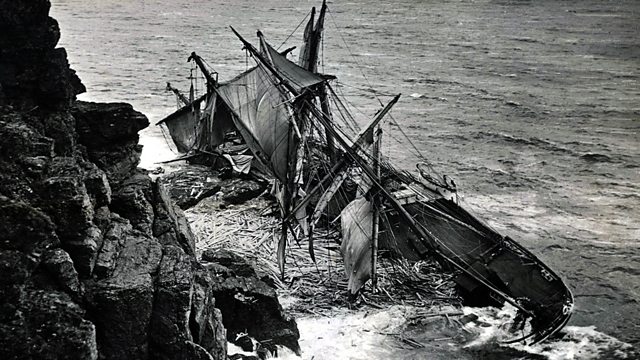SouthWest Shipwrecks
The number of ships sinking in European waters has been increasing. Helen Mark tours Devon and Cornwall to find out why so many shipwrecks still happen.
Helen Mark explores Devon and Corwall to investigate why so many shipwrecks still happen.
The grounding of the MSC Napoli in Lyme Bay in January 2007 made headlines around the world. The hull of the 62,000-tonne vessel cracked in waters off The Lizard, and while being towed to safety the situation worsened and she was grounded off Branscombe Beach. Several containers also fell overboard and were washed ashore, leading to scavengers coming from across the UK. The 50 million-pound cleanup operation and breakup was only completed in July 2009. Helen Mark revisits the famous beach to find out how the wreck and the drama affected their lives and landscape.
Modern wrecks still happen and the European Maritime Agency records show an increase in the number of ships sunk in European waters in recent years. Helen meets master mariner and lecturer Paul Wright to find out why these accidents still happen. She also learns about the HMS Scylla, a decommissioned frigate which was deliberately sunk off the south-west coast.
One reason for the danger is that our records of the sea bed can be surprisingly out of date. Some charts still have recordings made by the Victorians with a lead weight. Other areas have not been charted at all. The Maritime and Coastguard Agency are at the start of a 100-year project to accurately scan the seabed using modern 3D technology. But their findings are also discovering lost ships and submarines and revealing more about the geology of our sea floor.
Last on
Broadcasts
- Sat 2 Jan 2010 06:07Βι¶ΉΤΌΕΔ Radio 4
- Thu 7 Jan 2010 15:00Βι¶ΉΤΌΕΔ Radio 4 FM
Podcast
-
![]()
Open Country
Countryside magazine featuring the people and wildlife that shape the landscape of Britain


